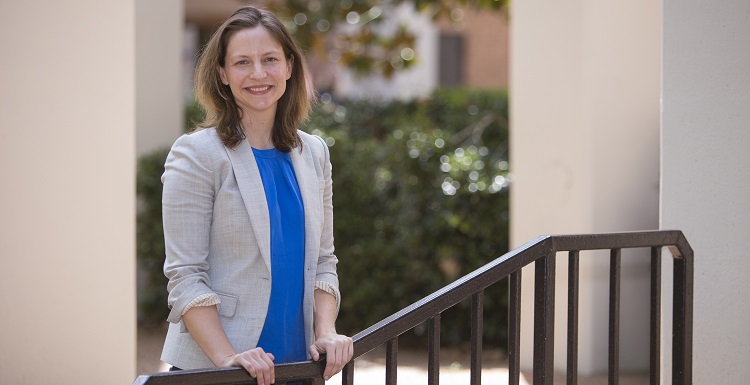South Assistant Professor Receives NEH Award to Study Early Autopsies
Posted on April 16, 2018 by Arts and Sciences

A University of South Alabama professor has received a National Endowment for the Humanities award, known as a “summer stipend,” for research abroad that will begin in June.
Dr. Claire Cage, assistant professor of history, was the only Alabama recipient when the NEH recently announced the awards. She will spend the $6,000 for travel to France where she will do research for a book on the history of forensic, or legal, medicine during the early 19th century. Her research will include archival searches for trial records of the period that include references to autopsies.
“Especially in the early 19th century, the French were at the forefront of using autopsies in investigations,” Cage explained. “One reason for that was because some of the best universities in the world for the study of medicine were in France.”
The autopsy had come of age with Giovanni Morgagni, the father of modern pathology, who in 1761 described what could be seen in the body with the naked eye. With his work, the study of the patient replaced the study of books.
“By the 19th century, far more autopsies were being conducted, and people were also paying more attention to the need to conduct post-mortem autopsies. For instance, during this time there was an epidemic of cholera, and a lot of people worried that some people had simply been buried because they were presumed to have died of cholera when they had actually been poisoned,” Cage said.
She added that “these doctors practicing legal medicine weren’t always involved only in criminal proceedings; some, for example, examined military conscripts and soldiers to see whether these men were acting like they had a medical condition they didn’t have in order to avoid service.”
Cage sees parallels between the interest in the forensic medicine of 200 years ago and today, where popular television shows and movies depict it almost as a supernatural tool to investigate and solve causes of deaths.
“The forensic medicine of that time wasn’t exactly what we consider forensic medicine today, although some of the processes and aims involving autopsies were like those conducted today,” Cage described. “Also, the public in that time was very interested in the need for autopsies. There was the morgue of Paris that became a public attraction with visitors of 20,000 per day because people were just interested in seeing a corpse up close.”
Cage, who began teaching at South six years ago, wrote her first book in 2015 on clerical celibacy. “Unnatural Frenchmen: The Politics of Priestly Celibacy and Marriage, 1720-1815,” examined emerging arguments during the Enlightenment and revolutionary France in the long debate over clerical celibacy, “but I kept finding all these fascinating topics that led me here.”
“It will probably take me a few more years to complete the book’s manuscript, but prior to then I also plan to publish some articles on the topics as well,” Cage said. “I’ve also been fortunate to receive some internal grants from the University, which along with the NEH money will help to expedite the entire process.”
